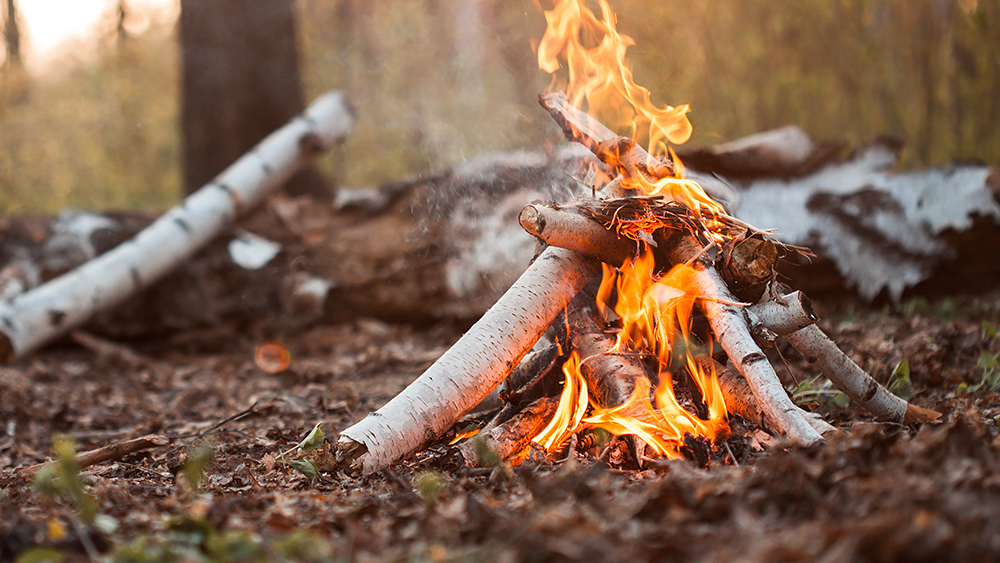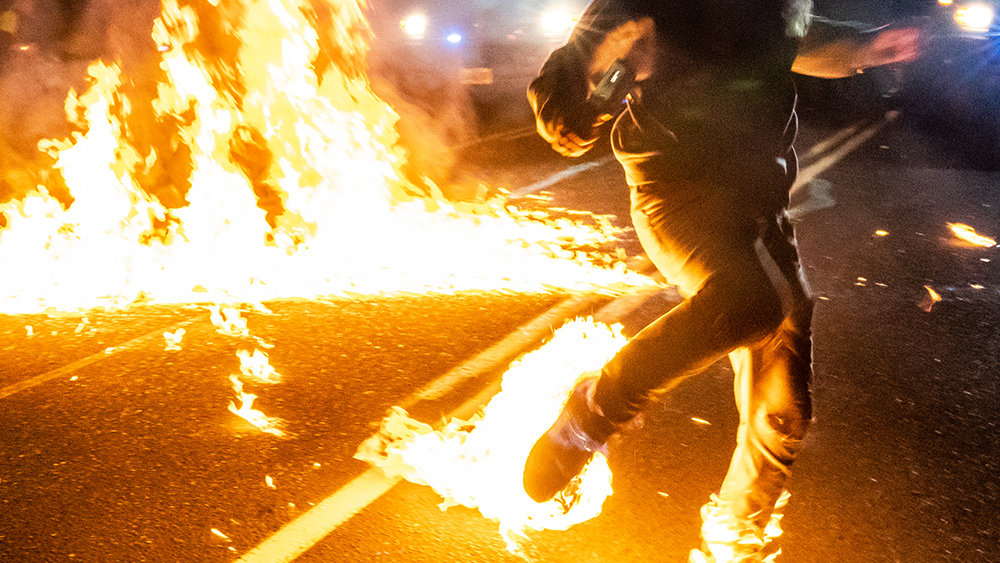
When it comes to prepping equipment, respirators should not be overlooked. While they can be potentially lifesaving when SHTF, respirators can still be useful even in your daily life. Both reusable and disposable respirators don't cost that much, so investing in them will be well worth it in the long run. Here are a few good reasons why you should consider packing a respirator in your bug-out bag. (h/t to TheOrganicPrepper.com)
Protection against smoke
When it comes to fires, smoke inhalation is more common and can often be more life-threatening than suffering from burns caused by the fire itself. If a fire breaks out in your home, you can avoid inhaling harmful smoke and ash by breathing through a respirator mask. The best type of respirator for this use is the P100 type, which filters out 99.97 percent of airborne particles and is completely oil-proof. If you are living with children or other family members, you should also stock up on child-sized and family-sized respirator masks. Keep these masks in easily accessible areas around your home, such as at your bedside.
Protection against disease-causing bacteria
Fomites are inanimate objects that can transfer disease-causing germs and bacteria, such as tiny droplets of saliva or phlegm. The great thing about respirators is that they can efficiently block the transmission of fomites, whether the person wearing the mask is the one who is sick or the one at risk of being infected. If a viral outbreak occurs in your local area, you can prevent the spread of infection by using disposable N100 or P100 respirator masks. Since bacteria are not oil-based, there wouldn't be that much difference between using an oil-proof P100 mask or an N100 mask that is not resistant to oil.
Protection against chemical solvents and fumes
Some heavy-duty, industrial work may involve constant exposure to toxic fumes and chemical solvents. If you work closely with any dangerous chemicals on a regular basis, you should protect your lungs with a reusable P100 mask. Make sure to regularly change your respirator's filter cartridges to meet the appropriate safety requirements. Other harmful substances or devices that may require the use of respirators include pesticides, industrial paints, and welding equipment. (Related: Study reveals that pesticides are linked to an increased risk of heart disease.)
Protection against mold and dust particles
Mold spores might not look threatening, but exposure to them can lead to a number of severe chronic health problems. Dust particles, such as sawdust, might not be as harmful as mold spores but they can trigger respiratory issues. If you are working in a dusty place or a damp area where mold is likely to thrive, you can protect your lungs by using an N100 respirator mask.
Protection against chemical gases and toxic debris
When SHTF, violent riots and collateral damage may occur in your vicinity. The ensuing chaos can result in toxic debris floating around in the surrounding air. Tear gas and other chemical gasses may also be used to disperse mobs of angry protesters. In these dire situations, you can protect yourself and your family using P100 respirator masks. It would also be a wise decision to stock up on protective goggles and thick clothing as some chemical gasses can be absorbed through your skin.
Protection against radiation
You never know when a nuclear strike may happen. If you are lucky enough to be outside the initial blast zone, you may have a small chance of survival, but you can significantly increase these chances if you can get as far away from the blast zone as possible. Traveling through irradiated areas might be difficult, but you can give yourself an extra layer of protection by wearing a P100 respirator mask, a pair of heavy-duty goggles, and a durable Tyvek suit.
Respirators might cost slightly more than regular face masks, but these tight-fitting masks can provide more efficient filtration of even the smallest airborne particles. Be sure to stock up on high-quality respirators and other survival gear for your bug-out bag because you never know when your life might depend on them.
Sources include:
Please contact us for more information.





















